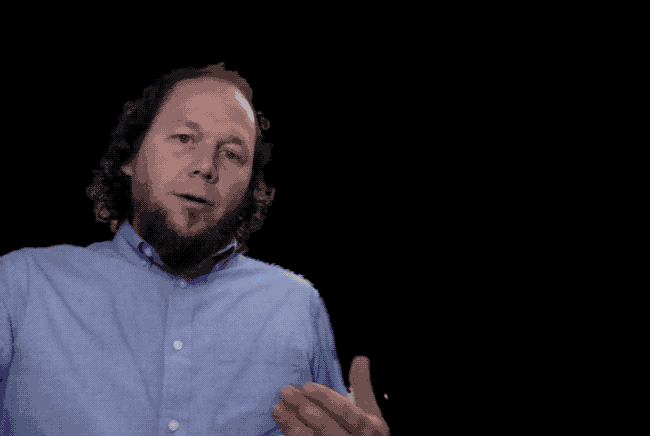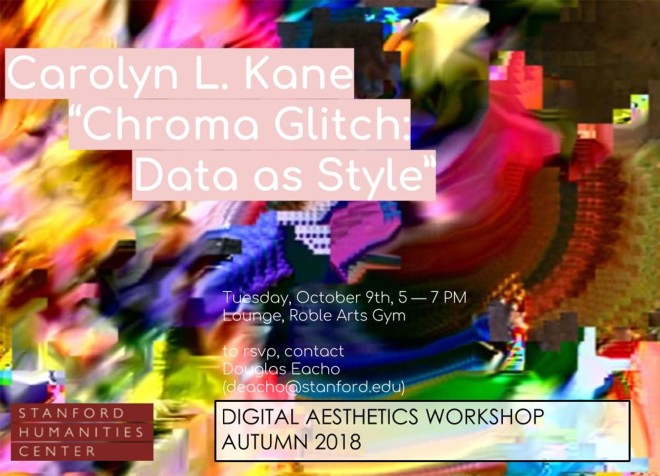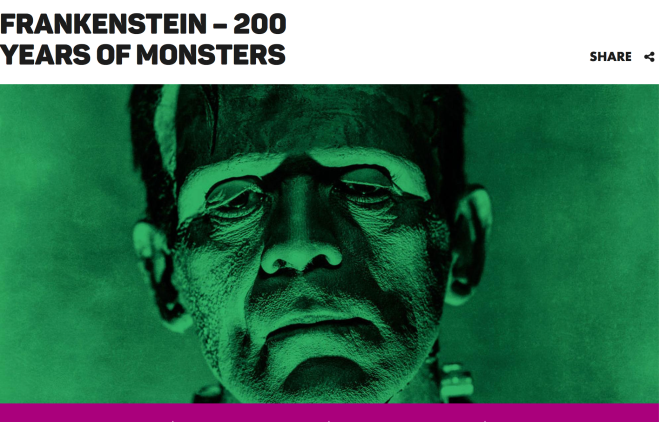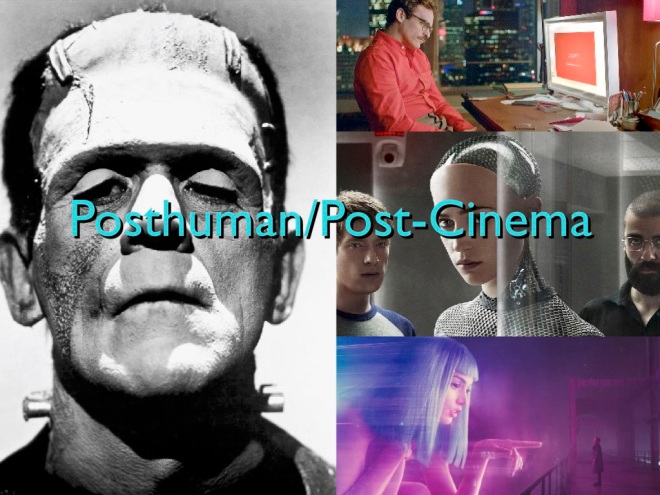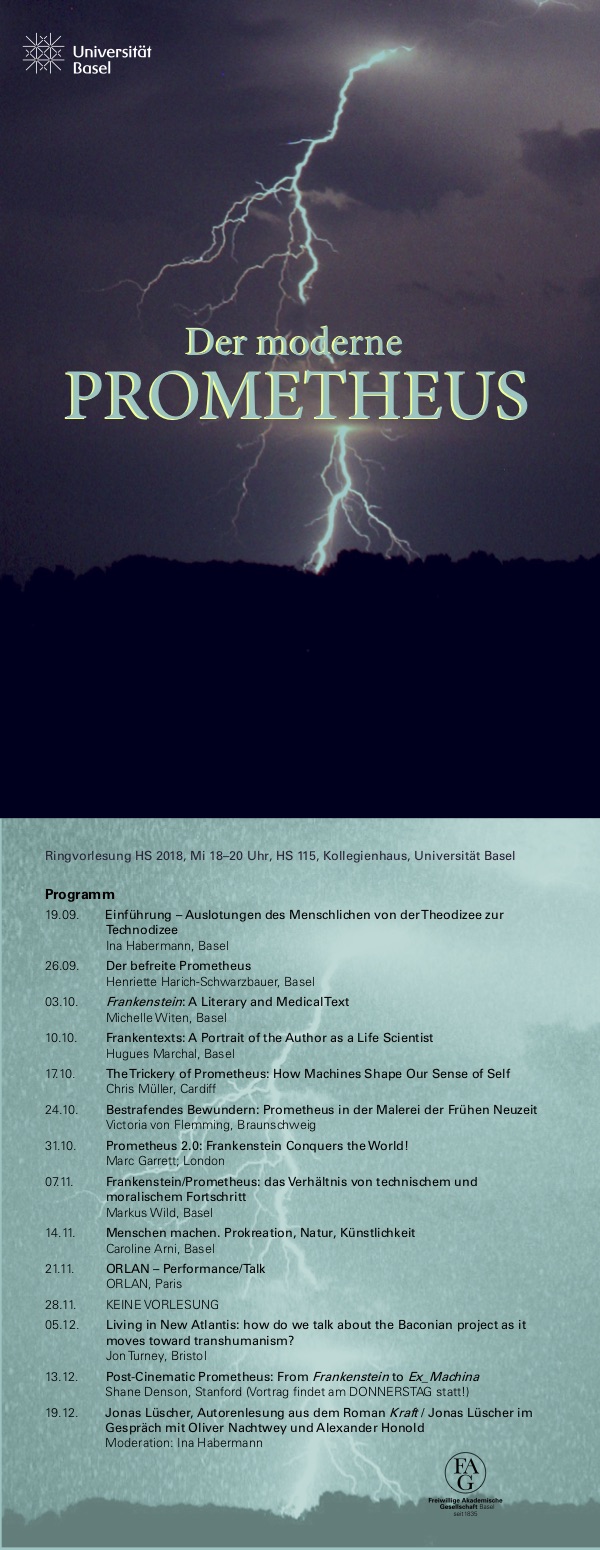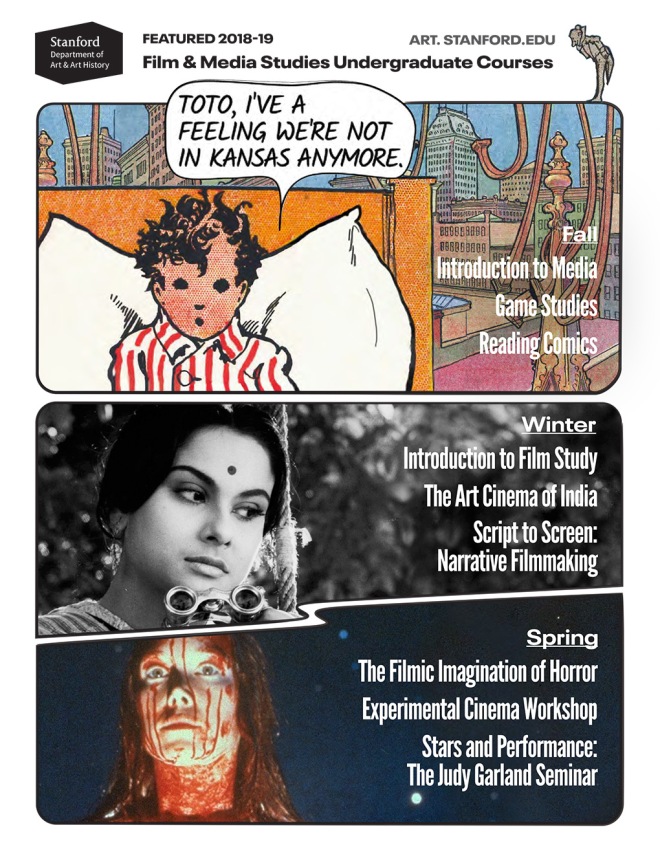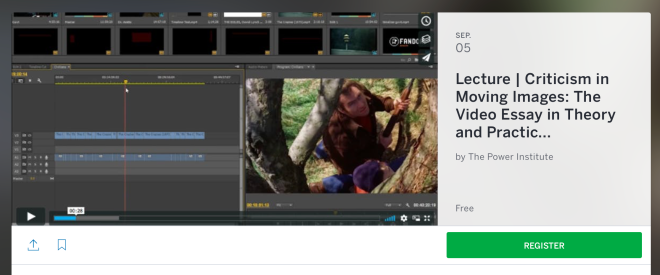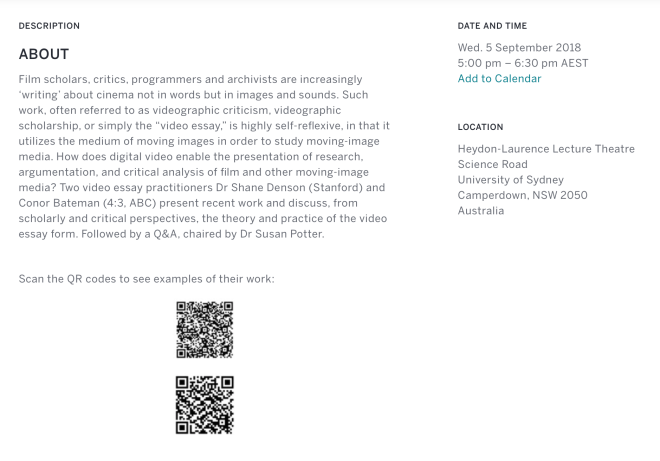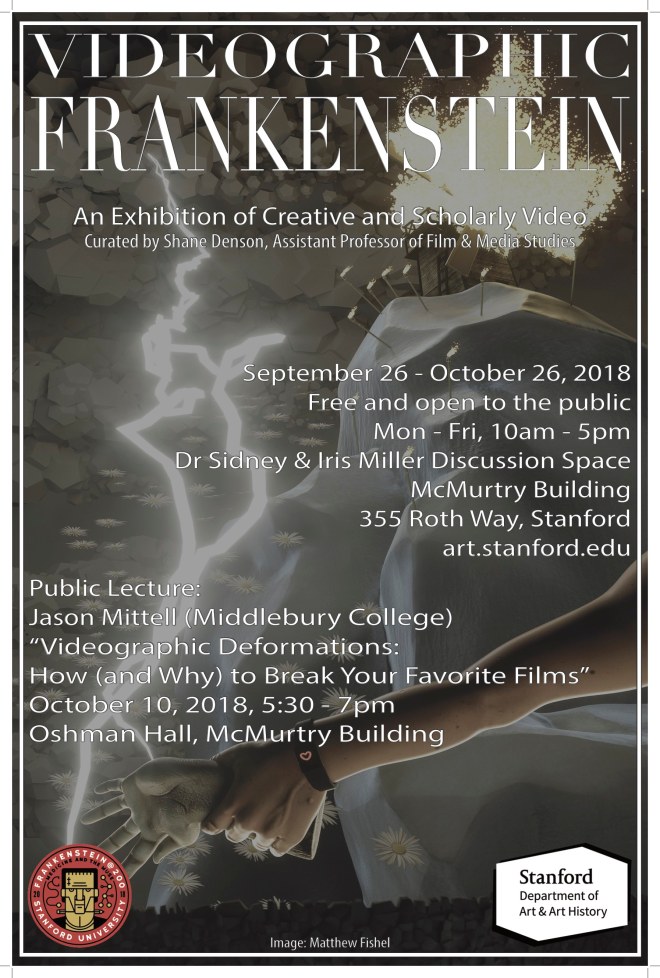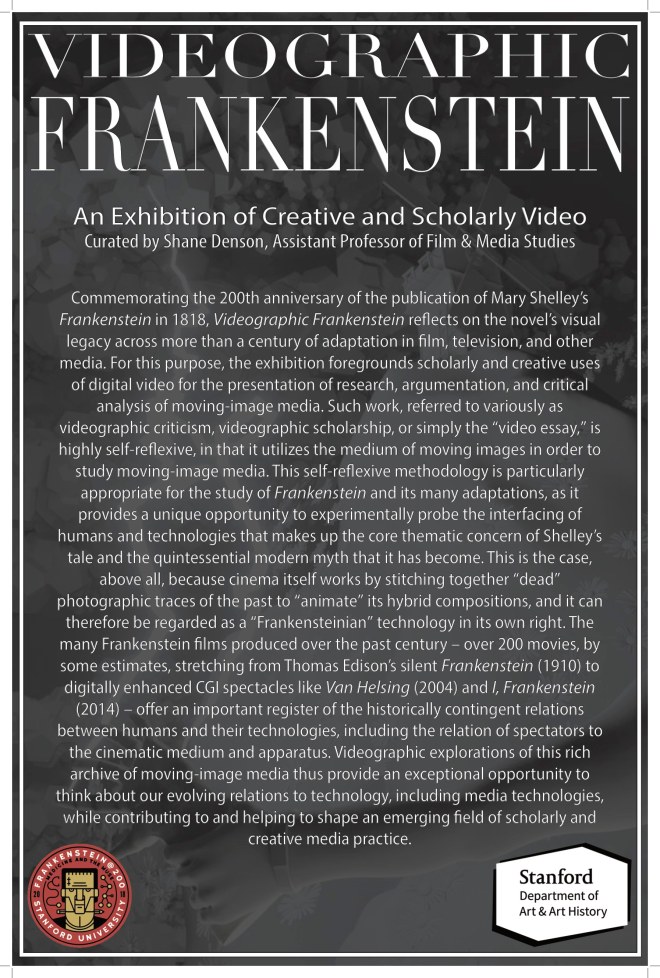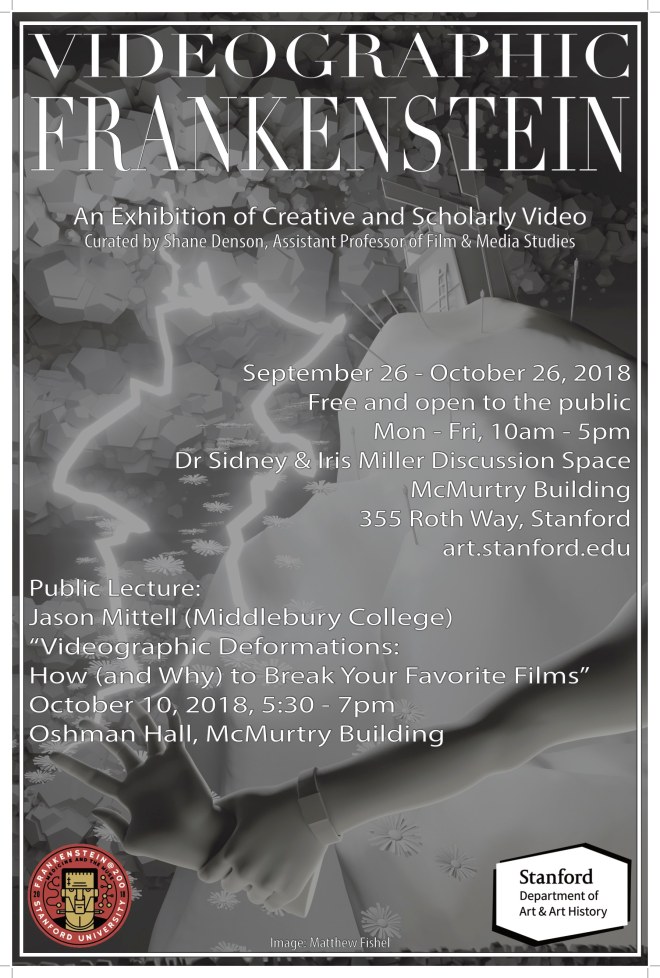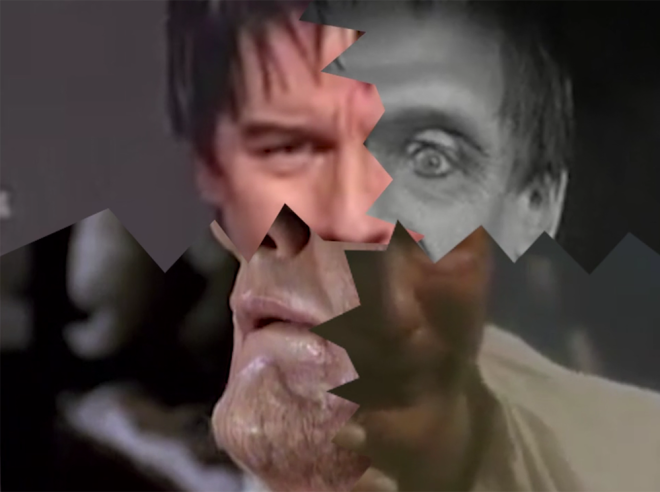
In conjunction with the exhibition Videographic Frankenstein (Sept. 26 – Oct. 26, 2018 in The Dr Sidney & Iris Miller Discussion Space, McMurtry Building, Stanford), television scholar and video essayist Jason Mittell (Middlebury College) will deliver a public lecture titled “Videographic Deformations: How (and Why) to Break Your Favorite Films.”
The lecture, which takes place at 5:30pm on October 10, 2018 in Oshman Hall (McMurtry Building), is in conversation with Frankenstein’s Television, Mittell’s contribution to the exhibition, and with a broader set of methodological concerns around the idea of “deformative” methods:
Deformative criticism has emerged as an innovative site of critical practice within media studies and digital humanities, revealing new insights into media texts by “breaking” them in controlled or chaotic ways. Media scholars are particularly well situated to such experimentation, as many of our objects of study exist in digital forms that lend themselves to wide-ranging manipulation. Building on Jason Mittell’s experiments with Singin’ in the Rain and his “Frankenstein’s Television” video (included in Stanford’s Videographic Frankenstein exhibit), this presentation discusses a range of deformations applied to film and television, considering what we can learn by breaking a media text in creative and unexpected ways.
Jason Mittell is Professor of Film & Media Culture and American Studies, and founder of the Digital Liberal Arts Initiative at Middlebury College. His books include Complex Television: The Poetics of Contemporary Television Storytelling (NYU Press, 2015), The Videographic Essay: Criticism in Sound and Image (with Christian Keathley; caboose books, 2016), and co-editor of How to Watch Television (with Ethan Thompson; NYU Press, 2013). He is project manager for [in]Transition: Journal of Videographic Film & Moving Image Studies, co-director of the NEH-supported workshop series Scholarship in Sound & Image, and a Fellow at the Peabody Media Center.
See here for more information.
